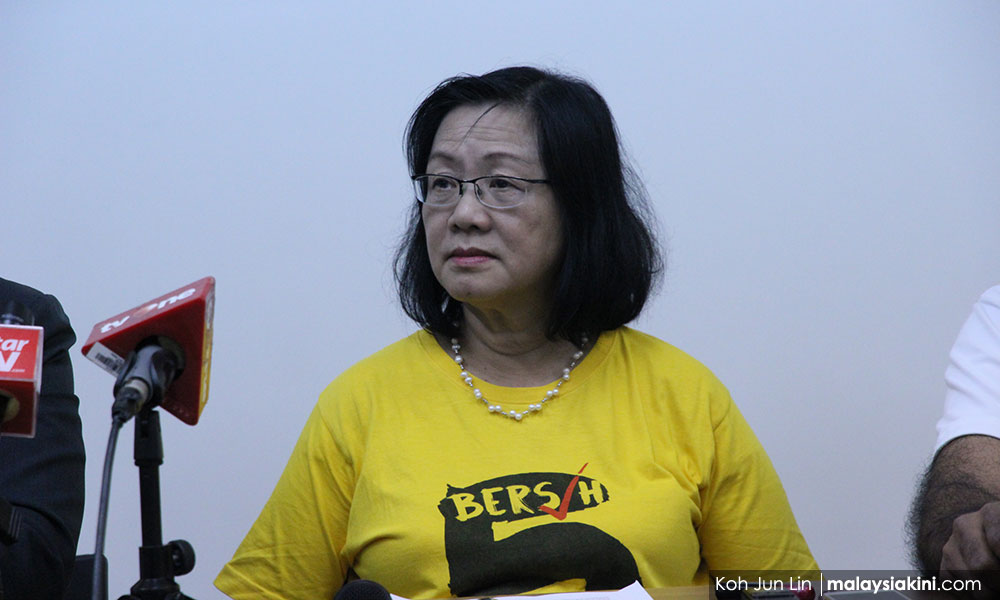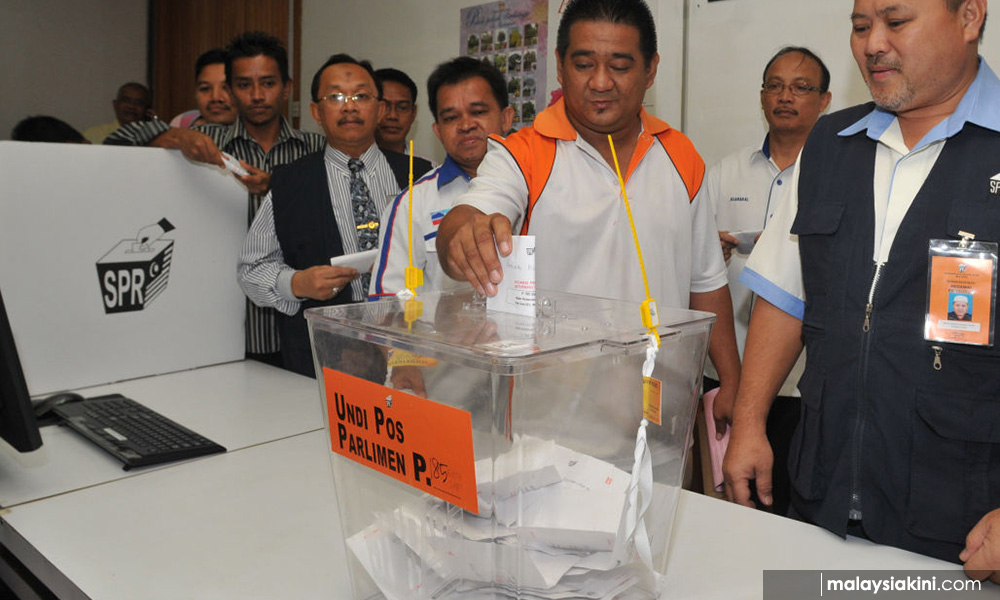
The Election Commission’s (EC) move to expand postal voting eligibility has led to concerns that it will lead to a greater abuse of the electoral process.
Bersih chairperson Maria Chin Abdullah said the postal voting process lacks transparency, and the EC should not expand its eligibility while there are other processes available to enfranchise voters.
“We are not saying ‘no’ to people who can’t come out to vote on polling day. We'd have to make allowances and build the processes, but these processes have to be very transparent and fair.
“Without the proper procedures and processes in place to assure the voter’s right to choose freely, voter secrecy, as well as documented and actual access to election observers, the EC should not be expanding new categories for postal voting, especially when there are other methods at its disposal to enfranchise these groups.
“These people can be advance voters. The Prisons Department, the Fire Department and so forth, they don’t need to be postal voters but they can be advance voters.
“We are especially concerned as the aforementioned government departments possess large populations and this may tilt elections in marginal seats in favour of the current government (in circumstances where civil servants don’t feel safe to vote freely),” Maria told a press conference in Petaling Jaya today.

On Oct 23 last year, the EC gazetted five additional categories of civil servants as being eligible for postal voting. These are the staff of the Prisons Department, the Fire and Rescue Department, the Maritime Enforcement Agency, government health workers working in government health institutions and the Police Volunteer Reserve.
On Dec 13 last year, the EC added the staff of the Civil Defence, the Immigration Department, the National Disaster Management Agency and the National Registration Department as eligible postal voters.
This applies to personnel of these agencies who are on duty on polling day.
During the previous general election, those eligible to register as postal voters included members of the police force, military and media personnel, as well as overseas voters, apart from those residing near the border.
Memo submitted to EC last May
Bersih has been campaigning to end the practice of postal voting in favour of advance voting, except for overseas voters.
It submitted a memorandum to the EC in May last year, calling for several reforms to the electoral process, including absentee voting.
Apart from doing away with postal voting, it urged that advance voting and counting of advance votes should both be done a day before polling day.
In contrast, advance voting during the 2013 general election was done five days ahead of polling day. The ballot boxes were then kept sealed in places such as police lock-ups until the end of polling day, when the boxes are unsealed for the ballots to be counted.
The Bersih memorandum also raised concerns about the lack of oversight of the postal voting process by polling agents and observers, and the possibility that a voter could vote as both a postal voter and a normal voter.
“So you don’t have to worry about secrecy, transportation of the ballot boxes and the cost (if you replace postal voting with advance voting). You vote, and you count on the same day.
“We are still waiting for a response to that (memorandum),” Maria said, and she urged the EC to respond within a week.- Mkini



No comments:
Post a Comment
Note: Only a member of this blog may post a comment.